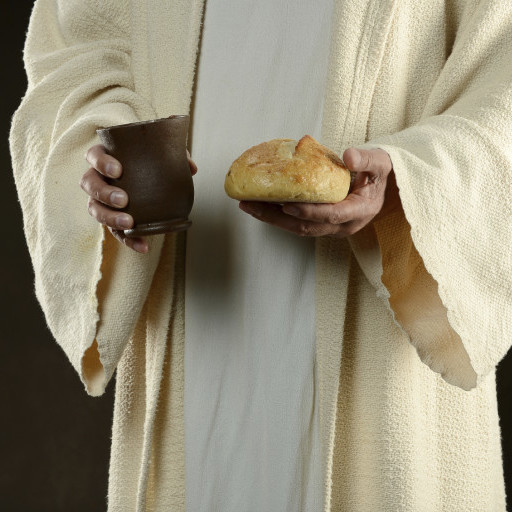Thy Kingdom Come
“Come O Thou King of Kings, we’ve waited long for thee”[i] This beautiful hymn captures the wishful longing imagination of millions of worshippers worldwide. In fact, all three of the major faith traditions from Abraham’s lineage expect a Messiah, a King Moshiach, a Mashiach, a Khristos, a Christ, or as they say in Islam Masih, Isa Ibn MaMaryam. This long-awaited King and Messiah is supposed to defeat the anti-Christ, Masih ad-Daj-jal, the false messiah and heal the nations.
In the Old Testament, Isaiah said, “And it shall be said in that day, Lo, this is our God; we have waited for him, and he will save us: this is the LORD; we have waited for him, we will be glad and rejoice in his salvation.”[ii]
And so we not so patiently wait, watching the insanity, the strife, the earth in commotion, family members hating each other, men cursing god because they cannot have pleasure in hurting other people despite the false promises of mesmerizing media.
In vain we build human enterprises with vast wealth and political capital only to see them not only fail our fickle hope, but tear down the very few things we still like about the world.
When Pilate, feeling somewhat challenged by the Jews, popular vote, and his own wife’s fearful pleading as Jesus if he were a King, Jesus floored the unflappable cruel Roman ruler with the truth above all others:
“My Kingdom is not an earthly kingdom. If it were, my followers would fight to keep me from being handed over to the Jewish leaders. But my Kingdom is not of this world.”[iii]
This is not what the Jewish leaders wanted in a Messiah. Wanting a warrior King to conquer and punish all their adversaries of every nation that harmed and was lording over them, they were sorely disappointed in all the would-be messiahs and revolutionaries of Jesus day. They even hated Jesus for having miraculous power but promoting subservience to Rome, their bitter enemy.
This Kingdom of Priests who ruled like Kings, was envisioned by Moses’ God in Exodus who said, “you will be for me a kingdom of priests and a holy nation.”[iv] Centuries later Peter echoed this hope in a royal kingly priesthood to rule the kingdom of God on the earth:
“But you are a chosen generation, a royal priesthood, a holy nation, a peculiar people; that ye should shew forth the praises of him who hath called you out of darkness into his marvelous light.”[v]
Unfortunately, the Kingdom visualized by prophets such as Ezekial and John the Revelator was a heavenly kingdom with a throne on which were seated God, the Father, and His Son, Jesus Christ.
However, there is the hope implied by Daniel’s interpretation of King Nebuchanezzer’s dream, of a heavenly kingdom not made by man, but cut out of a mountain by God Himself that would roll down the cosmic mountain and get so large as to break all the kingdoms of man apart and crush them, and go on to fill the whole earth.
Why would one want a king over a kingdom rather than a parliament. The laws and rules of men are fickle, powerless and less than enlightened. Wicked kings are hard to depose since they have so much power and friends in their wickedness who wipe out those who oppose them. Parliaments have to make too many compromises and the lofty goals get watered down and are not effective enough to fix the problems of the kingdom.
If we could always have righteous kings, whose only interest was the welfare of the people they served day and night, we would have the best of all worlds. Righteous kings would have the power to implement every good change and get rid of bad people and laws that hurt people. They would be just, and money could not buy their favor and pardons from awful crimes when poor people are jailed for trivial things.
So what is this kingdom of priests whose religious kingdom
is not of this world, but nevertheless fills the whole world and breaks down
all the kingdoms of men? How does this usher in the heavenly kingdom that is an
integral part of the Lord’s prayer, “Thy kingdom come”? These priests would
have to be pure and holy “qadash” similar but not the same as the Old Testament
priests and symbolically set apart “consecrated” from the world. They would
have to be motivated not by money or fame or power, but by love and humility
and serve those around them like Jesus did, as if those they served were
greater in importance than they themselves. The laws of the kingdom would not
be based on money but on Christ like service.

Heavenly temple in the clouds above the ocean. The concept of Christian and Catholic religion and faith. The majestic background for prayers, relaxation, meditation and calm spiritual experience.
[i] https://www.churchofjesuschrist.org/music/library/hymns/come-o-thou-king-of-kings?lang=eng&_r=1
[ii] Isaiah 25:9 King James Version https://biblehub.com/isaiah/25-9.htm
[iii] John 18:36 https://biblehub.com/john/18-36.htm
[iv] Exodus 19:6 New International Version
[v] 1 Peter 2:9 King James Version
